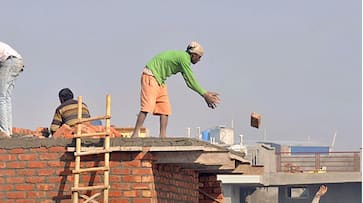The Code on Wages Bill, 2019, which seeks to amend and consolidate the laws relating to wages and bonuses has been passed in the Lok Sabha. The Bill is expected to benefit 50 crore workers
New Delhi: The Lok Sabha on Tuesday (July 30) passed the Wages Code Bill that will enable introduction of minimum wage for workers besides addressing issues like delay in payment to employees.
The Code on Wages Bill, 2019, which seeks to amend and consolidate the laws relating to wages and bonuses and matters connected therewith, will benefit 50 crore workers, labour minister Santosh Kumar Gangwar said, terming the Bill as a "historic step".
The Bill which was passed by voice vote subsumes four labour laws — Minimum Wages Act, Payment of Wages Act, Payment of Bonus Act and Equal Remuneration Act. After its enactment, all these four Acts would be repealed.
Gangwar said that while drafting the Bill, the government has accepted 17 out of the 24 recommendations made by the Standing Committee which had scrutinised the similar Bill introduced in the previous Lok Sabha.
As per the Bill, the tripartite committee comprising representatives of trade unions, employers and state government would fix a floor wage for workers throughout the country, Gangwar added.
In addition to other things, the Bill will effectively address the problems relating to delay in payment of wages whether on monthly, weekly or daily basis, the minister said.
At present, the provisions of both Minimum Wages Act and Payment of Wages Act apply on workers below a particular wage ceiling working in Scheduled Employments only.
The floor wage will be calculated based on minimum living conditions, benefiting about 50 crore workers across the country. At present there are 12 definitions of wages in the different labour laws leading to litigation besides difficulty in its implementation.
The definition has been simplified in the Bill and is expected to reduce litigation and also reduce compliance costs for employers.
The Code on Wages Bill was earlier introduced in Lok Sabha on August 10, 2017 and was referred to Parliamentary Standing Committee which submitted its Report in 2018.
Last Updated Jul 31, 2019, 6:10 PM IST









![Salman Khan sets stage on fire for Anant Ambani, Radhika Merchant pre-wedding festivities [WATCH] ATG](https://static-gi.asianetnews.com/images/01hr1hh8y86gvb4kbqgnyhc0w0/whatsapp-image-2024-03-03-at-12-24-37-pm_100x60xt.jpg)
![Pregnant Deepika Padukone dances with Ranveer Singh at Anant Ambani, Radhika Merchant pre-wedding bash [WATCH] ATG](https://static-gi.asianetnews.com/images/01hr1ffyd3nzqzgm6ba0k87vr8/whatsapp-image-2024-03-03-at-11-45-35-am_100x60xt.jpg)


